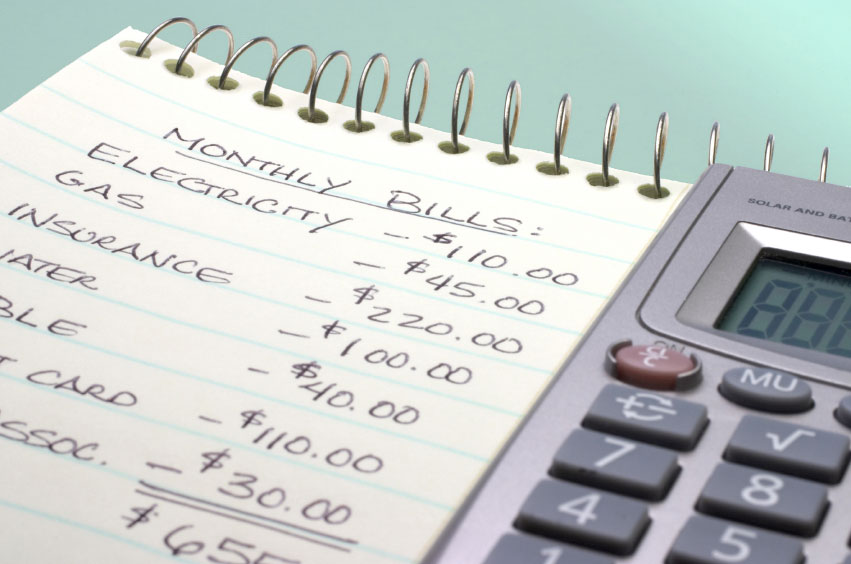
A budget is the easiest thing to write down, but one of the most difficult things to adhere to.
Another article on budgeting, how exciting! The fact that we keep writing about this topic shows that it is still necessary to discuss. But what works for one individual may not work for others. What works at one time, may not work at another. A budget needs to be regularly updated to ensure it reflects your current needs and goals.
Budgets, although not exciting, are important. It is a way to create a solid foundation for your financial well being, one that includes management of current income, expenses, savings and a financial plan for your future.
At some point most people want to buy a car or a home, maybe you just want to pay off your credit cards or school loans. Perhaps you want to retire at a decent age. Have you thought about how you will do this? What plans do you have to see this through? Do these thoughts keep you up a night worrying? These dreams will only become a reality with financial planning and part of financial planning is having some form of a budget to get you where you want to go.
Budget basics require knowing what you have to work with. When you know how much money you are making, you can then decide how much you can actually spend. The intake needs to be bigger than the exhaust.
A basic budget should include:
- A list of all your reoccurring bills
- How much do you owe (ie., loans and/or credit cards) Is your current credit card providing you with the most benefits.
- Think about a vehicle fund (maintenance)
- Maybe a travel fund (vacation)
- Holiday fund for gifts
- Something, anything, towards a savings account. Consideration of the varying types of savings investments. So many people neglect this and regret it. (A different article altogether)
- Health emergency fund
If a basic budget is simple, practical and efficient, you are more likely to stick with it.
A common question clients ask is: where did all my money go?
That is a good question and a great way to answer that question is to track your expenses and compare them to your ideal spending. If you don’t have time for this process, then hire a daily money manager. Let them do the hard work for you and help keep you organized and on track for success.
As a basic principle, you should be realistic with your wants vs your actual needs. For the average person creating a budget, it is important to think about your spending and how you can do more with your money. You might consider that overpriced latte you enjoy so much. How often do you get one, could you go one day without one? Do you go out to dinner every night? Could you eat home one night? I am sure you have some of your own examples. Once you have a basic budget, a daily money manager can help you work through and analyze your actual expenses.
A frequently overlooked secret to successful budgeting is to include a category for unexpected expenses. Once you start to spend money for unexpected needs without having the money available it can create a stressful downward spiral. Once caught in that spiral it is extremely difficult to find your way out, and very easy to create a lot of excuses for tossing out the whole budget, rather than make a quick course correction.
You have probably already tried one type of a budget, or, like a diet, you have tried many different variations of a budget waiting for one to stick, but you keep falling off the proverbial “budget wagon”. My advice is to keep trying.
Here at Keep Me Organized we help our clients stay focused and on budget. Slip ups are bound to happen from time to time. We see this as an opportunity to tailor your budget to work for you. Working with someone who can offer guidance and support will help you stay on track. We can help you stay accountable and be successful.
Although we at Keep Me Organized offer assistance and advice to clients at any phase in life, it feels particularly important to address the needs of students and younger adults. This demographic can reap lifelong benefits from establishing sound financial habits.
When creating a budget, remember to stick with the basics. You don’t need to download a special app or even buy a special ledger. I know it may sound crazy, but having you write down your monthly expenses helps you stay focused. The process of doing this allows you stay committed and on task. You can see your progress and review slow but steady gains.
A budget is a great way to be organized, and with time and planning, can lead to a healthier, less stressful life.
At Keep Me Organized we are always happy to help our clients realize their potential. If you are interested in services that help you with your financial affairs or would like more information, please contact us here at Keep Me Organized. We would love to help!
